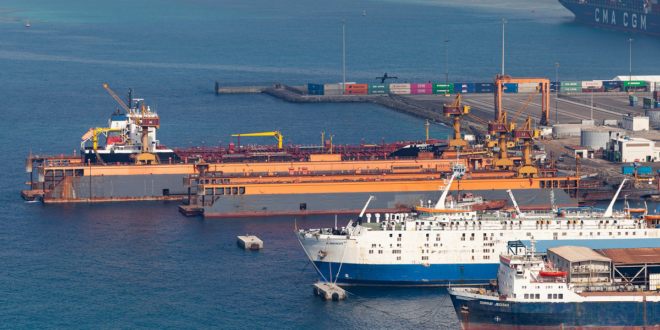In the past week, Iran-backed Houthi rebels in Yemen have fired missiles at container ships in the Red Sea in addition to attacking US and allied warships. Houthi representatives have said that those attacks will continue against ships related to Israel in any way, to support Hamas and as a protest against Israel’s war in Gaza. The attacks have raised geopolitical and military tension in the region and disrupted trade flows—adding headwinds to a fragile global economy and threatening to expand the already extensive war with rising civilian casualties launched in response to Hamas’ brutal terrorist attacks on October 7.
While no real damage has been done, top shipping companies such as Maersk, Hapag Lloyd, and MSC have decided not to use the Red Sea, pausing their ships before traversing the Bab-el-Mandab strait on their way to the Suez canal. Some ships have been diverted around Africa’s Cape of Good Hope—adding significant delays and costs. For example, voyages to Europe could be extended by up to two weeks, raising fuel and operating costs as well as delay costs for exporters, importers, and end users. Since 12 percent of global trade passes though the Red Sea, including 30 percent of global container traffic, accounting for one trillion dollars of trade each year, delay and diversion there would cause significant disruption to world trade. Oil and gas prices have already jumped following news of the attacks. Shipping insurance premiums have nearly doubled for some carriers over the past week.
The disruption to Red Sea shipping would create a strong headwind to the global economy which is still recovering from various shocks since 2020, such as the Covid-19 pandemic, Russia’s invasion of Ukraine, and the significant monetary tightening by major central banks. Energy importing regions will suffer the most; in particular low-income countries and Europe which is teetering on the verge of a recession. While the Israel-Hamas war has not yet had an impact on energy prices, the disruption in the Red Sea might. Rising oil and gas prices would keep headline inflation high, complicating central banks’ efforts to pivot to easing.
More importantly, the Houthi attacks have visibly raised the military tension in the region, threatening a spreading of the war in Gaza. The United States is about to launch a maritime protection force called “Operation Prosperity Guardian” including Western and Arab countries to protect shipping in the Red Sea. However, it is difficult to see how that can completely protect commercial ships from missile attacks or the threat of them. Bombing missile sites on Yemeni soil would expand the scope of the conflict and likely cause civilian casualties, further inflaming and dividing international public opinion.
In short, the longer the war in Gaza lasts, the longer shipping disruptions caused by missile attacks in the Red Sea will go on. The risk is that a widening conflict further destabilizes the regional economy, and in turn spills over into the global economy.
 Eurasia Press & News
Eurasia Press & News


